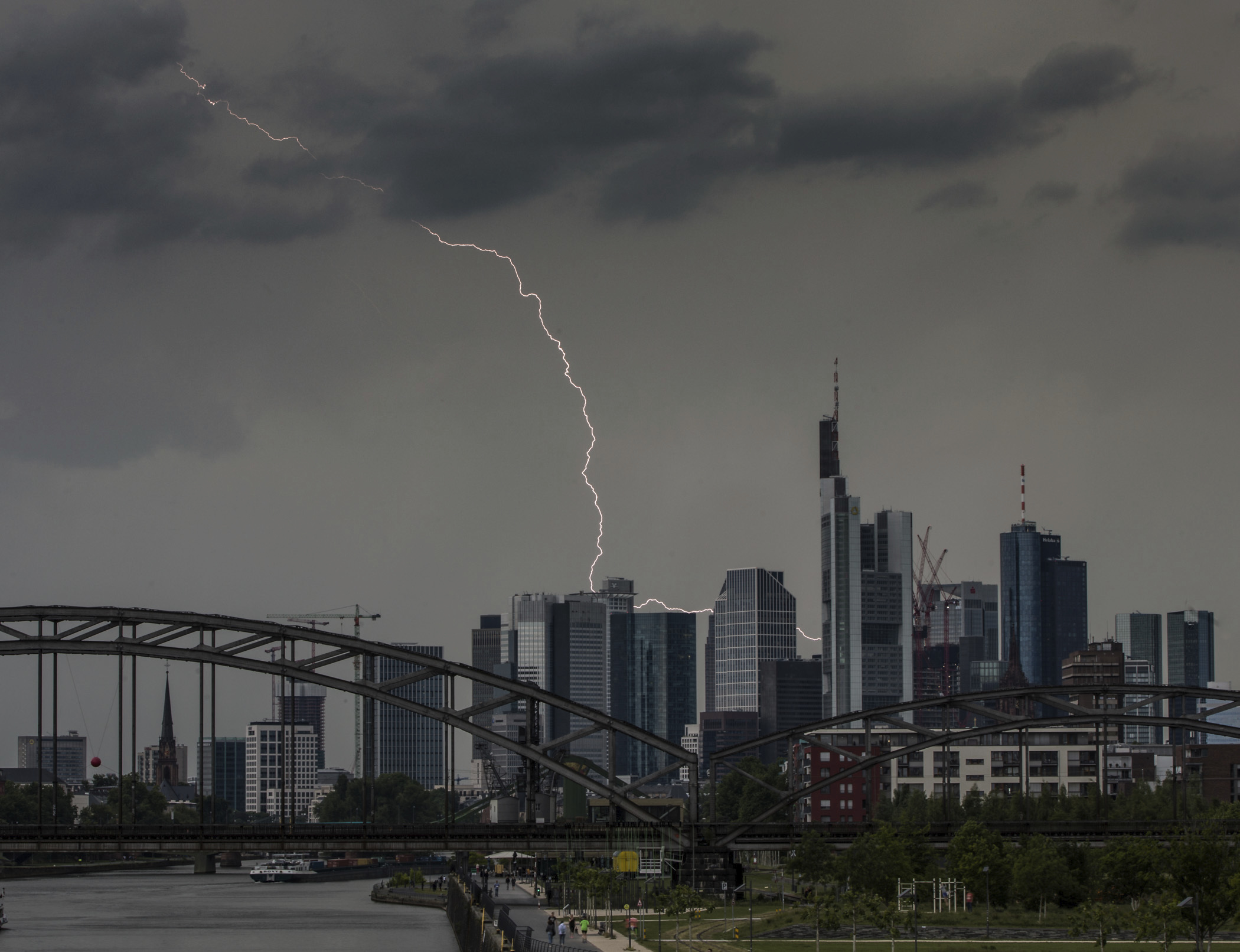
By DAVID McHUGH
VESELIN TOSHKOV
Associated Press
FRANKFURT, Germany (AP) — Bulgaria has hit a setback to its hopes of soon becoming a member of the shared euro currency after the European Central Bank said the EU’s poorest country needs “wide-ranging” reforms to get its economy in shape. That assessment came in the ECB’s report card Wednesday on progress toward membership among seven European Union member countries that have not yet joined the 19-country euro.
Bulgarian officials have said they want to enter the two-year process that leads to joining the euro, called ERM II, this year. Their hope is that a swift entry into the eurozone would guarantee Bulgaria’s deeper integration in the EU. But the ECB expressed concern about high business debt, corruption and weak education and skills training. Bulgaria is also experiencing a high level of bad loans burdening bank balance sheets. The decision is ultimately made by eurozone political leaders based on the currency union’s rules but the ECB report will strengthen skepticism about the Bulgarian bid.
The EU’s executive commission released its own report Wednesday, saying Bulgaria had fulfilled requirements for sound public finances, stable long term interest rates and price stability. Economic Affairs Commissioner Pierre Moscovici cautioned that experience had shown that for countries to prosper in the eurozone, it’s important that their economies be truly in tune with others in the bloc. They must “work hard” to increase investment and productivity, he said. Bulgaria’s desire to join makes a positive statement for EU officials against a background of rising anti-EU political forces in Hungary, Poland and most recently in member country Italy.
There is also however the worrisome example of Greece, which joined the euro in 2001 after fudging its budget statistics and with an economy burdened by corruption, political patronage and bureaucracy. Greece wound up needing three bailouts and precipitated a eurozone financial crisis. Once in the euro, countries no longer have their own currency to devalue, the usual safety valve in a crisis. Instead, they must go through agonizing cost-cutting to regain competitiveness. The ECB has also pressed Bulgaria to join the EU’s banking oversight authority, which could toughen regulation of banks and make sure they don’t bring new trouble to the eurozone.
Last month, Bulgarian Prime Minister Boyko Borissov said that joining the banking union had been imposed as a condition of entering the ERM II. He said that the Bulgarian position was to enter the waiting room first, and “the next day” the country would file an application to enter the banking union. The government argues that the country meets the economic conditions for adopting the single currency, like the levels of public debt, inflation, budget deficits and interest rates. Bulgaria maintains a stable exchange rate since its currency, the lev, has been pegged to the euro since 1997.
Bulgaria’s per-capita economic output is only half the EU average; according to World Bank figures, it was $7,469 in 2016. When adjusted for the lower cost of living, it was still only $19,242. The shadow still looms of the biggest financial crisis in the country’s history, sparked by the collapse in 2014 of the fourth biggest lender, Corporate Commercial Bank, which eroded confidence in Bulgaria’s national bank. Following the crisis, Bulgaria said it would join the banking union and allow its banks to be overseen by the ECB but the plan was shelved. Additionally, efforts to crack down on widespread corruption have so far failed to bring tangible results.
Nine EU countries have not adopted the euro. Denmark has an opt-out, as does the United Kingdom, which in any case is in the process of leaving the union. The report examined Bulgaria, the Czech Republic, Croatia, Hungary, Poland, Romania and Sweden. Legally, their EU membership means they commit to join the euro once they meet the necessary conditions, which can take years.



















